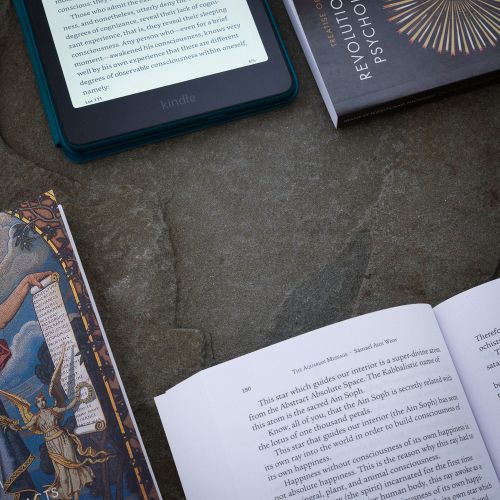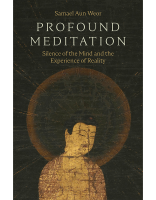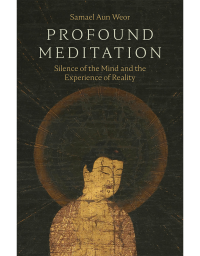A summary of the autobiography of the Chinese Master named Han Shan has arrived to us, which is worth commenting on for the best comprehension of this 1965-1966 Christmas Message.
The Master Han Shan was born in Chuan Chiao, in the beautiful Chinese region of Nanking. In dreams, the Divine Mother announced to a very humble woman from that region that she would conceive a child, and indeed she conceived a beautiful child that was born the 12th of October of 1545. That child was the great Chinese Master named Han Shan.
When the child was a twelve months old, he caught a very critical sickness that nearly killed him. His humble mother, filled with faith, prayed to the Divine Mother Kundalini (Guanyin), promising Her with all of her heart that if the child recovered she would place him in a monastery and allow him to become a monk. Thus, when the child recovered, his beloved mother registered his name (“Heshang,” Buddhist monk) at the Buddhist Monastery of Long Life.
From a very early age, the child Han Shan demonstrated to truly be a master. When an uncle of the boy died and another aunt gave birth to a child, Han Shan worried intensely about studying the mysteries of life and death.
Han Shan’s mother was really very severe with the boy. On a certain occasion she said, “I must overcome his very tender nature so that he will study as he should, otherwise he will be useless.”
At the appropriate age the boy entered the monastery and became a true devotee of Guanyin, the Divine Mother. On a given moment, he recited the entire Sutra of the Bodhisattva Guanyin for his beloved mother, and naturally she was astonished and delighted.
Tradition states that when the Master Ta Chou Chao saw this beautiful boy, he joyfully exclaimed, “This boy will be a master of men and of heavens.” When that master asked the boy, “Which would you rather be: an official or a Buddha?” the boy answered with complete certainty, “I want to be a Buddha.”
As a youngster, Han Shan became deeply preoccupied in the pursuit of his esoteric calling. After reading a copy of the sayings of the life of the great Chinese Master Chung Feng, he dedicated himself to his spiritual life. Tradition states that Amitabha Buddha, Kwan Yin, and Mahasthamaprapta (Ta Shih Chih) appeared to him in the internal worlds. Undoubtedly, all of this was definitive in order for Han Shan to fully dedicate himself to his esoteric life.
After listening to a marvelous lecture about the Ten Mysterious Gates—the eternal realm of the Ocean Seal [Samadhi], Han Shan adopted the name “Ching Yin.”
When Cheng Yin was twenty years old, the abbot master—his great master—died. However, before dying, the abbot master gathered all his disciples together and said, “I am eighty-three years old and soon will leave this Earth. Though I have over eighty disciples, none of them will be able to take my place...” The abbot master then said, “I wish Han Shan (Ching Yin) to continue my work. Yes, although he is young, he is as able as an adult. After my death, despite his youth, you will have to respect his word.” Thus, this is how the Chinese Master Han Shan began his great work in this world.
When studying the concepts of the book by Zhao Lun and preparing it for printing, he became enlightened when reading the section that contained a story about a Brahmin who went back to visit the home he had left as a child. Though the Brahmin’s hair was white and he had aged considerably, the neighbors were able to recognize him and exclaimed, “Look, the man who used to live here is still alive.” Yet the old Brahmin smiled and said: “Oh, no. I look like an old man, but in reality I am not.” When Han Shan read this, he said, “Only appearances change. The underlying Dharma does not have a beginning or end!” How truthful this is, how truthful!
The Chan Master Fa Guang was the one who instructed Han Shan profoundly about the scientific technique of meditation. He taught Han Shan about the disassociation of the mind, the subconsciousness, sensorial perceptions, and how to maintain himself beyond the dualities of sacredness and profanity, or saintly and worldly knowledge during meditation.
The associations of the mind that form phrases, memories, images, ideas, desires, etc., constitute the fundamental cause of that incessant mental chatter and the entire battle of the antitheses. If based in comprehension we attain mental disassociation—if based in comprehension we obtain the disassociation of all subconscious memories—if based in comprehension we manage to eliminate the subjective elements of our perceptions, then it is clear that the mind remains quiet and in silence, not only in the superficial level, but also in the most profound levels of the subconsciousness.
Han Shan attained the quietude and silence of the mind. He became in fact an enlightened Master of Perfection. Ancient wise men said, “Whosoever does not allow his mind to become disturbed when hearing the sound of running water for thirty years will soon attain the all-pervading wisdom of the miraculous Bodhisattva Avalokiteshvara.”
Han Shan became an athlete of internal meditation, thus nothing could disturb him. His food consisted of grains, vegetables, and rice, just enough to live.
Han Shan became a true athlete of the quietude and silence of the mind. Thus, it is clear that he achieved enlightenment.
The powers that many covet are the outcome or consequence of enlightenment. Yes, when we have really arrived at enlightenment, then powers come to the mystic without the need to covet them.
Han Shan said, “My daily food was a gruel of bran, weeds, and rice water… One day, after having my gruel, I took a walk. Suddenly I stood still, filled with the realization that I had no body or mind. [In that blissful moment, he entered samadhi.] All I could see was one great illuminating Whole—omnipresent, perfect, lucid, and serene. It was like an al-embracing mirror…” —Chang Chen-Chi, The Practice of Zen (1953)
From then, all of the powers of positive clairvoyance, formidable clairaudience, telepathy, regal intuition, etc., awoke totally in Han Shan, thanks to the quietude and silence of the mind, and as a consequence of enlightenment.
Han Shan composed the following precious poem, transcribed by Chang Chen-Chi:
Where perfect stillness reigns is True Illumination.
Since serene reflection includes all that is, I can see
Once more the world, now full of naught but dreams.
Now I understand how true and faithful is the Buddha’s teachings.
Based on very intimate meditation and on the supreme quietude and silence of the mind, Han Shan managed to awaken the Buddhata—that is to say, the Essence, the consciousness. During the hours of sleep, Han Shan stopped dreaming and lived totally awake within the superior worlds. When returning to his physical body after the rest of sleep, he brought to his physical brain all the memories of his experiences within the superior worlds. Han Shan attained all of that based on mental quietude and silence.
One night while his physical body slept, Han Shan entered the great temple of wisdom. The great Masters Ching Liang and Miao Feng—in their astral bodies—welcomed him with immense joy. In that solemn temple, Han Shan received the most precious teaching “Entering into [the state of] the Dharmadhatu,” in which he learned in depth about the laws of evolution or progress and devolution or retrogress.
Han Shan also comprehended that there are Buddhic lands that interpenetrate each other without being confused, and that in those lands excellence and service are fundamental. He comprehended that in us what discriminates is the subconsciousness, and what does not discriminate is wisdom. He also comprehended that purity or impurity depend totally upon our mind.
In his astral body in the temple of Maitreya Bodhisattva, Han Shan opened and read in a sutra,
That which discriminates is consciousness;1 that which does not discriminate is Wisdom.2 From relying on consciousness, defilements come; from relying on Wisdom, purity comes. From the defilements arise life and death. [If one realizes the purity] there are no Buddhas.
When after many long years of absence Han Shan returned to his house, the neighbors asked his mother, “Where did he come from? Did he come by boat or by land?” His mother replied, “Well, he came from the void!”
Certainly, Han Shan came from the illuminating Void. Thus, this is how it is written and how Chang Chen-Chi narrated it.
After great practices, the quietude and absolute silence of the mind brings about the bursting of the bag, our entrance into the illuminating Void. We then enter into ecstasy, because our consciousness awakens.







